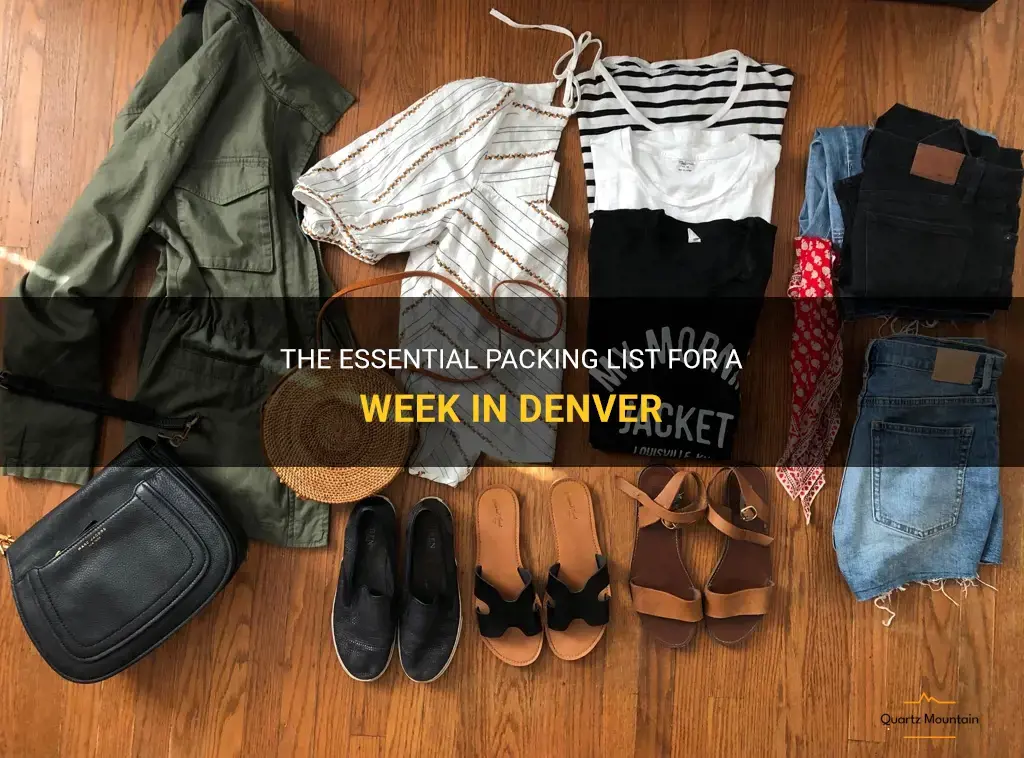
Are you planning a week-long trip to Denver and want to make sure you have all the essentials packed? Look no further! In this article, we have compiled a comprehensive list of must-have items for a week in the Mile High City. From clothing to hiking gear and everything in between, this packing list will ensure you are prepared for any adventure Denver has to offer. So grab your suitcase and get ready to explore the beauty and excitement of the Rocky Mountain capital!
What You'll Learn
- What clothing should I pack for a week in Denver, taking into account the city's weather patterns throughout the year?
- Are there any specific items or accessories I should pack for activities like hiking or exploring the city?
- What essentials should I bring for the different seasons in Denver, such as sunscreen or snow gear?
- Are there any specific items or equipment I should consider bringing for outdoor activities like skiing or snowboarding in the nearby mountains?
- Are there any cultural or dress code considerations to keep in mind when packing for a week in Denver?

What clothing should I pack for a week in Denver, taking into account the city's weather patterns throughout the year?

When packing for a week in Denver, it is important to take into account the city's unique weather patterns throughout the year. The Mile High City, as it is affectionately known, experiences a semi-arid climate with four distinct seasons and a wide range of temperature fluctuations. Here are some tips on what clothing to pack for a week in Denver, depending on the time of year:
Spring (March to May):
Springtime in Denver can be quite unpredictable, with rapidly changing weather conditions. It is recommended to pack layers that can be easily added or removed. Start with a lightweight jacket or sweater, as temperatures can still be quite cool, especially in the evenings. T-shirts and long-sleeved shirts are essential for layering, along with jeans or pants. Don't forget to bring a pair of comfortable walking shoes for exploring the city.
Summer (June to August):
Summers in Denver are generally warm and dry, with plenty of sunshine. It is advisable to pack lightweight, breathable clothing such as shorts, skirts, and dresses. T-shirts, tank tops, and lightweight blouses are perfect for the hot days. A light jacket or sweater may be needed for cooler evenings or if you plan to spend time in the mountains, where temperatures can be cooler. Don't forget your sunscreen and a hat to protect yourself from the strong Colorado sun.
Fall (September to November):
Autumn in Denver brings cooler temperatures and the changing colors of the trees. Pack a mix of short-sleeved and long-sleeved shirts for layering. A light jacket or sweater is essential for the cooler mornings and evenings. Jeans, pants, or skirts paired with tights or leggings are suitable for the transitional weather. Bring a pair of comfortable shoes for walking, as well as a hat and sunglasses for protection from the sun.
Winter (December to February):
Winters in Denver can be cold and snowy, so it is important to pack warm clothing. A heavy coat or jacket is a must, along with sweaters, long-sleeved shirts, and thermal layers. Don't forget to bring gloves, a scarf, and a hat to protect yourself from the cold. Insulated boots with good traction are necessary for navigating snowy sidewalks. Layering is crucial, as indoor spaces tend to be heated, while outdoor temperatures can be significantly colder.
It is important to check the weather forecast before your trip to ensure that you have packed appropriately. Remember to pack versatile pieces that can be mixed and matched for different outfit combinations. By being prepared for the weather patterns in Denver, you can make the most of your week in the Mile High City.
The Essential Wardrobe for a Trip to Aruba
You may want to see also

Are there any specific items or accessories I should pack for activities like hiking or exploring the city?
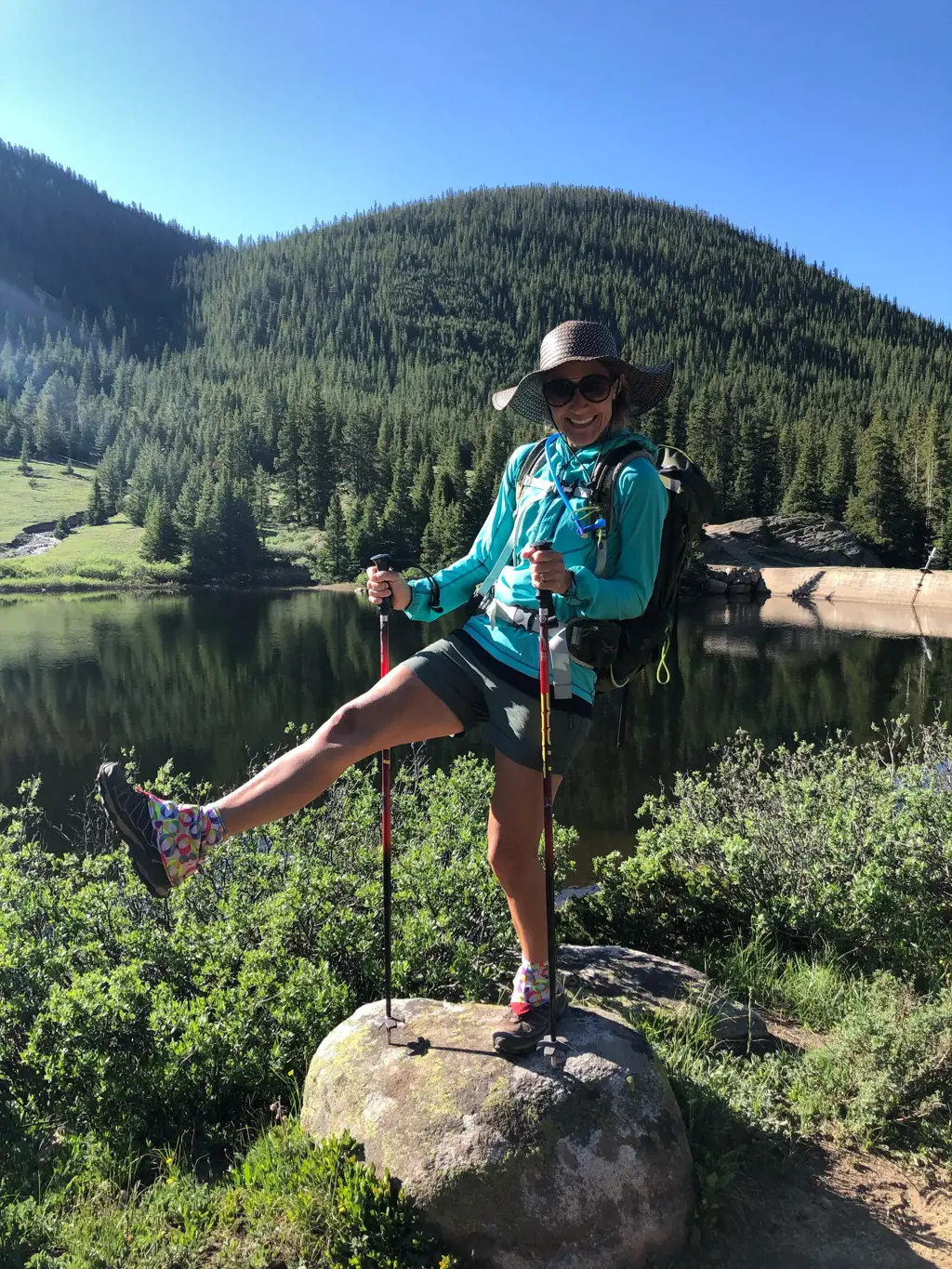
Whether you are planning a hike through the wilderness or a day of exploring a new city, it is important to pack the right items and accessories to ensure a comfortable and enjoyable experience. The specific items you will need can vary depending on the location, weather, and duration of your activities. However, here are some essential items and accessories that you should consider packing for hiking or city exploration.
- Comfortable and sturdy footwear: Regardless of whether you are hiking or walking around the city, comfortable footwear is crucial. For hiking, invest in a good pair of hiking boots that provide ankle support and have a strong grip on different terrains. In the city, opt for comfortable walking shoes or sneakers that will keep your feet happy during long days of exploration.
- Appropriate clothing: Dressing appropriately for the weather and activity is important. For hiking, consider packing moisture-wicking and quick-drying clothing to keep you comfortable and dry when you break a sweat. Layers are also essential to adapt to changing temperatures. In the city, choose comfortable and breathable clothing that suits the climate and allows for easy movement.
- Daypack: A daypack is essential for storing your belongings during your activities. Look for a backpack that is lightweight, durable, and has multiple compartments to keep your items organized. A daypack will allow you to carry essentials such as water, snacks, a map, sunglasses, and sunscreen.
- Navigation tools: When hiking, it is crucial to carry a map, compass, or a GPS device to help you navigate the trails. In the city, consider downloading a navigation app on your smartphone to help you find your way around. It is always a good idea to have a backup navigation option in case your phone runs out of battery or loses signal.
- Water and snacks: Staying hydrated and energized is important during any activity. Carry a refillable water bottle and pack enough water for the duration of your hike or exploration. For snacks, choose lightweight and high-energy options such as granola bars, nuts, or dried fruits to keep you fueled throughout the day.
- First aid kit: Accidents can happen, so it is important to carry a basic first aid kit for any outdoor or urban adventure. Include items such as band-aids, antiseptic ointment, pain relievers, blister pads, and any necessary medications.
- Protection from the elements: Depending on the weather conditions, you may need to pack additional items for protection. For hiking, consider bringing a lightweight rain jacket, a hat, and sunscreen to protect yourself from the sun's rays. In the city, an umbrella or a lightweight jacket might be necessary in case of rain.
- Portable charger: If you rely heavily on your smartphone for navigation, it is essential to bring a portable charger to ensure you have enough battery power throughout the day. This will also come in handy if you need to make emergency calls or capture memorable moments with your camera.
When preparing for activities like hiking or exploring the city, it is always a good idea to research the specific location and its weather conditions. This will help you determine the essential items and accessories you need to pack. Remember to pack light and only bring items that are necessary to avoid carrying excess weight. Enjoy your adventures!
Essential Items for a Memorable Sleepover at Your Boyfriend's
You may want to see also

What essentials should I bring for the different seasons in Denver, such as sunscreen or snow gear?
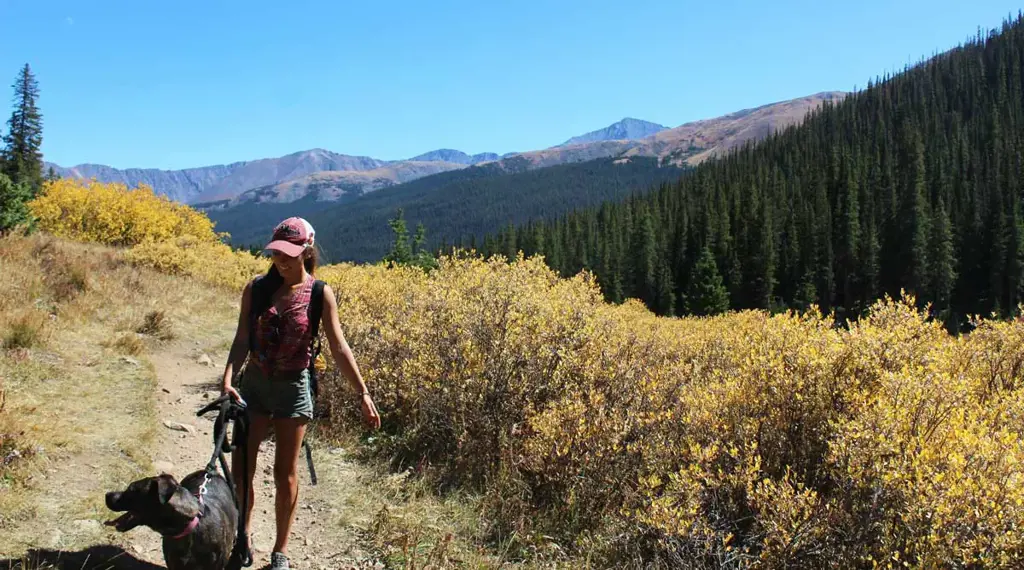
When preparing for a trip to Denver, it is important to consider the different seasons and the essentials you will need. The weather in Denver can vary greatly depending on the time of year, so it is important to be prepared for all types of weather conditions. Here are some essential items to bring for each season in Denver:
Spring:
- Layered clothing: In the spring, the weather in Denver can be quite unpredictable, with temperatures ranging from cool to warm. It is best to dress in layers so that you can adjust your clothing as needed throughout the day.
- Rain gear: Spring in Denver can be quite rainy, so it is a good idea to bring a rain jacket or an umbrella to stay dry.
- Comfortable walking shoes: Denver is a great city for walking and exploring, so be sure to bring a comfortable pair of walking shoes for all the outdoor activities you may want to do.
Summer:
- Sunscreen: Denver is known for its high altitude, which means that the sun's rays are stronger. It is important to bring a high SPF sunscreen to protect your skin from the sun.
- Light, breathable clothing: Summers in Denver can be hot, so it is best to pack lightweight and breathable clothing to stay comfortable in the heat.
- Hat and sunglasses: Along with sunscreen, it is also important to bring a hat and sunglasses to protect your face and eyes from the sun.
Fall:
- Warm layers: The temperatures in Denver can drop significantly in the fall, so it is important to bring warm layers such as sweaters, jackets, and scarves to stay cozy.
- Comfortable shoes: Fall is a great time to explore the beautiful nature in and around Denver, so be sure to bring comfortable shoes for hiking and walking.
Winter:
- Warm winter coat: Winters in Denver can be cold and snowy, so it is essential to bring a warm winter coat to stay warm.
- Snow gear: If you plan on participating in winter activities such as skiing or snowboarding, be sure to bring appropriate snow gear such as snow pants, gloves, and boots.
- Moisturizer: The cold weather can be harsh on your skin, so it is important to bring a moisturizer to keep your skin hydrated.
Overall, when packing for a trip to Denver, it is crucial to consider the different seasons and the weather conditions that come with each season. By packing the appropriate essentials, you can ensure that you stay comfortable and prepared for whatever the weather may bring.
A Complete Guide: What to Pack as an Au Pair in America
You may want to see also

Are there any specific items or equipment I should consider bringing for outdoor activities like skiing or snowboarding in the nearby mountains?
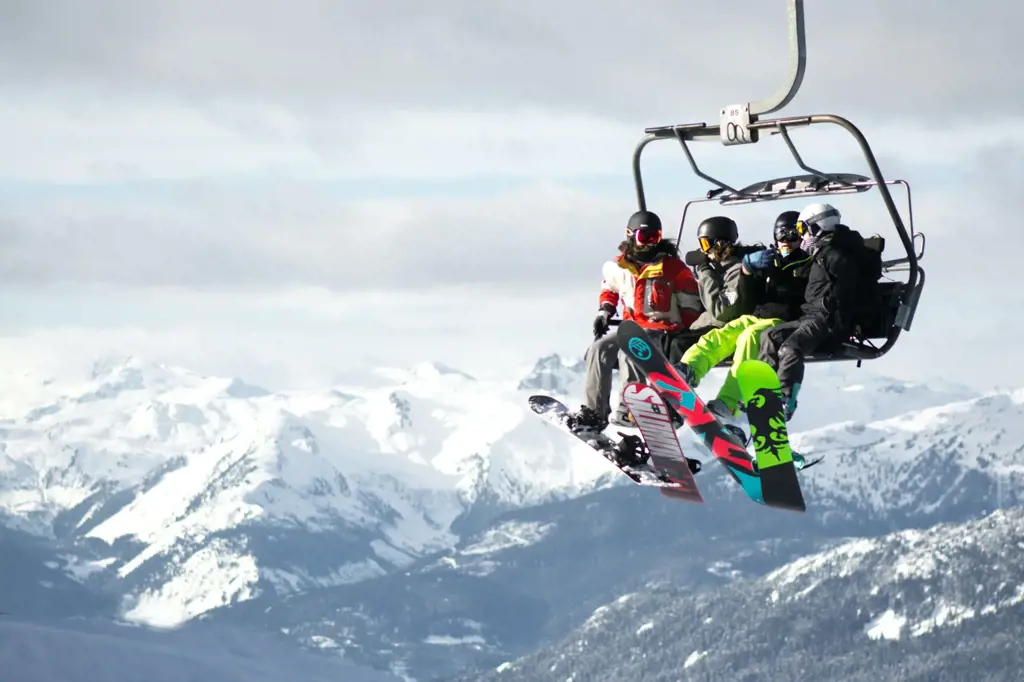
When planning a trip to go skiing or snowboarding in the nearby mountains, it is important to be prepared with the right equipment and gear. This will ensure that you have an enjoyable and safe experience on the slopes. Here are some specific items you should consider bringing for your outdoor activities in the mountains:
- Skis or Snowboard: If you are planning to ski or snowboard, it is essential to have the appropriate equipment. Make sure your skis or snowboard are in good condition and properly waxed for optimal performance on the slopes.
- Ski Boots or Snowboard Boots: Having the right boots that fit properly is crucial for comfort and control while skiing or snowboarding. Make sure to wear comfortable and warm socks to avoid blisters or cold feet.
- Ski Poles: Skiers often use poles to help with balance and propulsion while on the slopes. Make sure your ski poles are the correct length for your height and skiing style.
- Helmet: Safety should always be a top priority when participating in any outdoor activity. Wearing a helmet while skiing or snowboarding can help protect your head in case of a fall or collision.
- Goggles or Sunglasses: Protecting your eyes from the sun's glare and the wind is important while skiing or snowboarding. Goggles are ideal for snowy conditions, while sunglasses are suitable for sunny days on the slopes.
- Layers of Clothing: It is important to dress in layers to stay warm and comfortable while participating in outdoor winter activities. Start with a moisture-wicking base layer to keep sweat away from your body, add an insulating mid-layer, and finish with a waterproof and windproof outer layer.
- Gloves or Mittens: Keeping your hands warm and protected is essential in cold temperatures. Invest in gloves or mittens that are waterproof, insulated, and provide good dexterity for gripping ski poles or adjusting gear.
- Thermal Underwear: Wearing thermal underwear can help regulate your body temperature and keep you warm while skiing or snowboarding. Look for moisture-wicking and breathable fabrics that will keep you dry and comfortable.
- Socks: Choose socks made from a moisture-wicking material to keep your feet dry and warm. Avoid cotton socks, as they tend to absorb moisture and can leave your feet cold and uncomfortable.
- Backpack: A backpack is a handy item to bring along for storing extra layers of clothing, water, snacks, and any other essentials you may need on the slopes.
- Sunscreen: Even on cloudy days, the sun's rays can be strong at high altitudes. Protect your skin by applying a high SPF sunscreen before hitting the slopes.
- Water Bottle: Staying hydrated is important, even in cold temperatures. Bring a water bottle with you and drink regularly throughout the day to avoid dehydration.
Remember, these are just some suggestions for items you may want to bring for your skiing or snowboarding trip. Make sure to check the weather forecast and consult with experienced skiers or snowboarders for additional advice. Being prepared with the right equipment will ensure that you have a safe and enjoyable time on the slopes.
Essential Items to Pack for a Snow Trip with Kids
You may want to see also

Are there any cultural or dress code considerations to keep in mind when packing for a week in Denver?
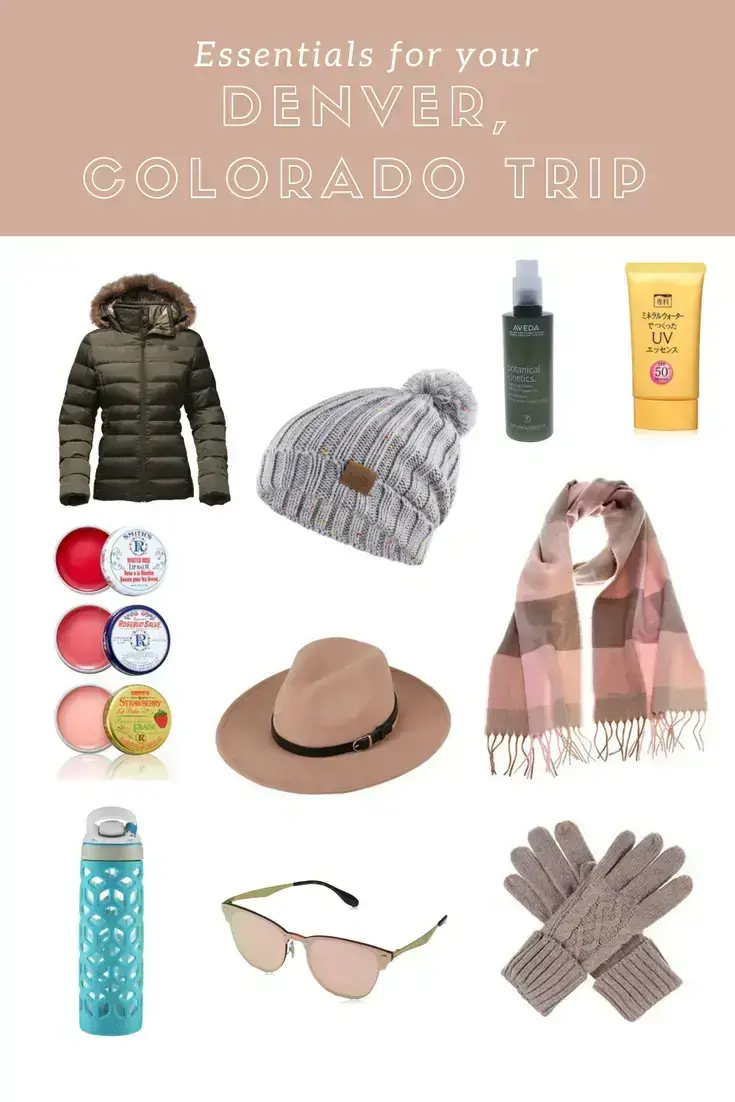
When packing for a week in Denver, it is important to consider the cultural and dress code norms of the city. While Denver is a relatively laid-back city, there are still some considerations to keep in mind to ensure you fit in with the local culture and dress appropriately for the weather and activities.
- Weather Considerations: Denver experiences all four seasons, so it's essential to pack clothes suitable for the current weather conditions. Summers can be hot with temperatures reaching the mid-90s (Fahrenheit), so pack lightweight and breathable clothing like shorts, t-shirts, and sundresses. However, keep in mind that even in the summer, evenings can get cool, so bring a light jacket or sweater. Fall and spring can be unpredictable, so pack layers like cardigans, long-sleeved shirts, and jeans. Winters are cold, with temperatures often dropping below freezing, so pack warm clothing including heavy coats, scarves, gloves, and hats.
- Outdoor Activities: Denver is known for its outdoor activities, so if you plan on hiking, biking, or exploring the Rocky Mountains, make sure to bring appropriate gear. Hiking boots, comfortable sportswear, and a backpack will all come in handy. Don't forget to pack sunscreen, a hat, and sunglasses, as the altitude in Denver can often result in stronger sun rays.
- Casual and Comfortable: Denver is a casual city, and the dress code is generally relaxed. Jeans, t-shirts, and sneakers are acceptable for most situations, including dining out, shopping, or visiting tourist attractions. However, it's always a good idea to bring one or two slightly dressier outfits for any upscale restaurants, events, or nightlife you may want to experience.
- Cultural Sensitivities: Denver is a diverse city with a variety of ethnicities, cultures, and backgrounds. It is important to respect and be aware of the cultural norms and sensitivities of the locals. While Denver is generally accepting of different styles of dress, it is still advisable to dress modestly when visiting religious or culturally significant sites. Additionally, it's important to be respectful of the local wildlife and environment when participating in outdoor activities by adhering to any guidelines or regulations.
- Local Fashion: Denver has its own unique sense of fashion, and you may notice a more outdoorsy or bohemian style among the locals. Western-inspired clothing, such as cowboy boots or hats, is also quite common. While it's not necessary to conform to these styles, it can be a fun way to embrace the local culture and fit in with the Denver fashion scene.
In conclusion, when packing for a week in Denver, it's important to consider the weather, outdoor activities, cultural sensitivities, and local fashion. By taking these factors into account, you can ensure that you are comfortable, respectful, and fitting in with the local culture during your stay in the Mile High City.
Essential Items to Pack for a Relaxing Trip to Glen Ivy Hot Springs
You may want to see also
Frequently asked questions
It is best to pack layers when visiting Denver. The weather can vary greatly throughout the day, with warm temperatures during the day and cooler temperatures at night. Make sure to bring a mix of short-sleeve and long-sleeve shirts, as well as sweaters or jackets for the evenings. Don't forget to pack comfortable walking shoes, as Denver is a city that encourages exploration on foot.
Yes, packing sunscreen and sunglasses is highly recommended when visiting Denver. The city is known for its sunny days and high elevation, which can increase the risk of sunburn. It is important to protect your skin and eyes from the strong UV rays, especially if you plan on spending a lot of time outdoors.
Denver offers a wide range of activities, from exploring the city's vibrant arts and culture scene to enjoying outdoor activities like hiking and biking in the nearby mountains. If you plan on hiking or spending time in the mountains, make sure to pack comfortable clothing and sturdy shoes. Additionally, bring a backpack with essentials like water, snacks, and a map or GPS device. If you plan on visiting museums or other indoor attractions, consider packing a light jacket or sweater, as the air conditioning can sometimes be cool.
Denver is known for its dry climate, with very little rainfall. However, it is always wise to be prepared for unexpected weather changes. While packing an umbrella may not be necessary, it may be a good idea to bring a lightweight, packable rain jacket or poncho just in case. Additionally, check the weather forecast before your trip to get a better idea of what to expect during your stay in Denver.







